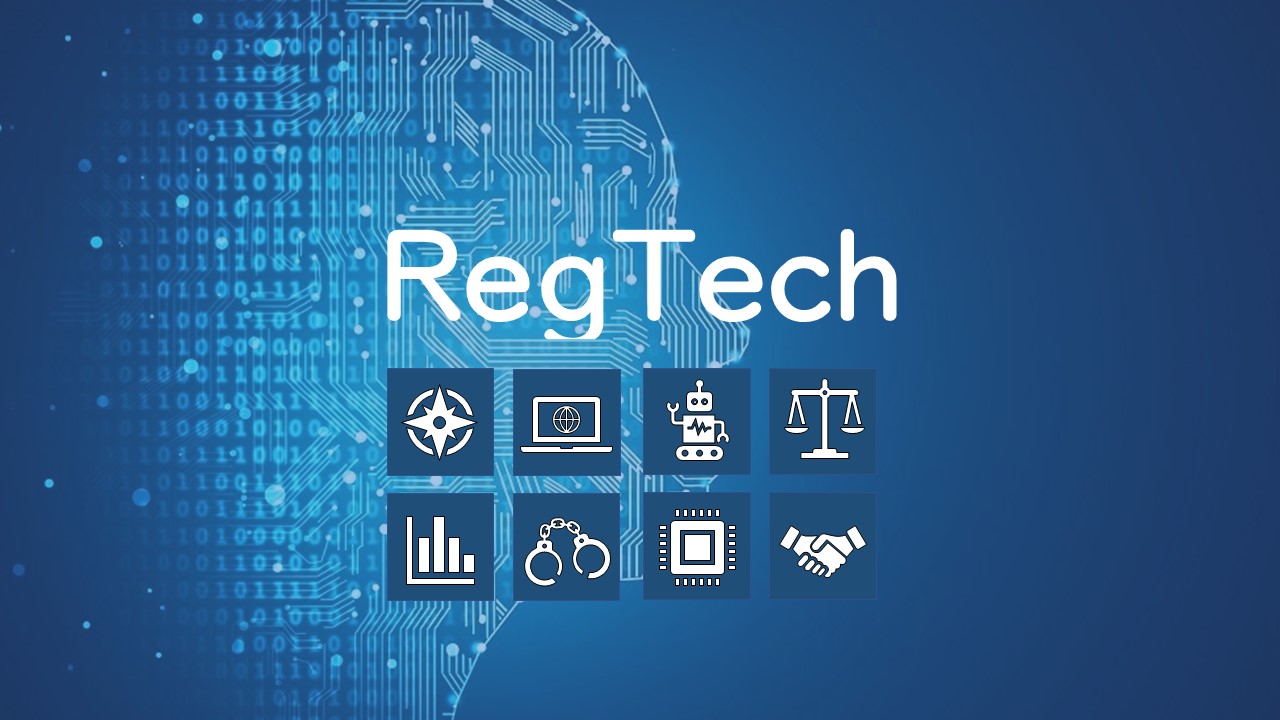RegTech In Finance - Definition, Importance, And Barriers
RegTech in finance is crucial as adherence to regulations is mandatory, and the costs of non-compliance are substantial. Companies failing to comply with regulations may incur hefty penalties, suffer reputation damage, and even face criminal charges.
Author:Habiba AshtonReviewer:Gordon DickersonJan 14, 20248.8K Shares191.6K Views

RegTech in financeis crucial as adherence to regulations is mandatory, and the costs of non-compliance are substantial. Companies failing to comply with regulations may incur hefty penalties, suffer reputation damage, and even face criminal charges. In this context, RegTech companies have become indispensable within the financial industry, where compliance holds paramount importance.
What Is Regulatory Technology (RegTech)?
Regulatory Technology (RegTech) is an emerging platform that seamlessly integrates regulations with cutting-edge technology to facilitate compliance within increasingly intricate regulatory landscapes across diverse industries, including banking, finance, communication, and energy. RegTech plays a crucial role in providing users with ongoing monitoring capabilities and tailored solutions for areas not adhering to regulatory standards. By doing so, it enables companies to derive cost-effective, real-time solutions from their risk and compliance units.
The significance of RegTech stems from the mandatory nature of regulatory compliance, where the costs of non-compliance are substantial. Companies failing to adhere to regulations face severe penalties, damage to their reputation, and potential criminal charges. In this context, RegTech companies have become indispensable, particularly in the financial industry, where compliance holds paramount importance.
The RegTech industry is instrumental in aiding financial institutions in meeting regulatory requirements by offering automated solutions that streamline compliance processes. These innovative solutions empower financial institutions to reduce costs and mitigate risks associated with non-compliance. RegTech has emerged as a transformative force for financial institutions, assisting them in navigating the complexities of evolving regulations while efficiently managing compliance risks.
Understanding RegTech
RegTech comprises a community of technology companies addressing challenges arising from a technology-driven economy through automation. The proliferation of digital products has led to increased threats such as data breaches, cyber hacks, money laundering, and other fraudulent activities.
By harnessing the power of big data and machine-learning technology, RegTech aims to mitigate risks for a company's compliance department by providing insights into online money laundering activities that might go unnoticed by traditional compliance teams. These activities often occur in underground marketplaces on the internet.
RegTech tools actively monitor online transactions in real time, identifying anomalies or irregularities in the digital payment landscape. Any deviation from the norm is promptly communicated to the financial institution for analysis, enabling the early detection of potential fraudulent activity. Institutions equipped to identify threats to financial security on time can minimize the associated risks and costs related to lost funds and data breaches.
Operating primarily through cloud computing technology via software-as-a-service (SaaS), RegTech companies assist businesses in achieving regulatory compliance efficiently and cost-effectively. These companies collaborate with financial institutions and regulatory bodies, leveraging cloud computing and big data to facilitate the quick and secure sharing of information among stakeholders.
Handling vast volumes of data can pose significant challenges for banks, often making the process overly intricate, expensive, and time-consuming. In such scenarios, a RegTech firm can play a crucial role by integrating complex data from a bank with information gleaned from past regulatory failures.
This amalgamation allows the RegTech firm to identify potential risk areas that warrant the bank's attention. By developing analytics tools tailored to the specific needs of these banks, the RegTech firm streamlines the compliance process, ultimately saving the bank both time and money. Furthermore, the bank gains an effective tool to adhere to the rules stipulated by financial authorities.
History Of RegTech
In the aftermath of the 2008 financial crisis, a surge in financial sector regulations unfolded alongside an increased adoption of disruptive technologies within the industry. Breakthroughs in technology gave rise to a growing number of fintech companies focused on developing technology-driven products to enhance customer experiences and engagement with financial institutions.
The intensified reliance on consumer data for crafting digital products raised concerns among regulatory bodies, prompting calls for additional legislation on data privacy usage and distribution. The convergence of heightened regulatory measures and laws with a financial sector increasingly dependent on technology spurred the emergence of regulatory technology or regtech.
By mid-2018, deregulation in the United States, exemplified by the unwinding of the Dodd-Frank Wall Street Reform and Consumer Protection Act (Dodd-Frank) rules, resulted in a slowdown in financing deals for regtech companies. However, the persistent compliance burden is expected to continue driving the industry toward greater automation.
Characteristics Of RegTech
Regtech exhibits key characteristics such as agility, speed, integration, and analytics. Through the application of extract and transfer load technologies, regtech can swiftly untangle and organize complex and interconnected datasets.
It is adept at generating reports promptly and can facilitate integration for the rapid implementation of solutions. Furthermore, regtech leverages analytic tools to effectively mine large datasets, utilizing the extracted insights for various purposes.
Relationship Between RegTech And FinTech
RegTech and FinTech represent distinct industries, yet their relationship is symbiotic, with the growth of FinTech driving the emergence of RegTech solutions tailored to meet regulatory compliance needs for financial institutions. The regulatory landscape for financial institutions is intricate and extensive, and adherence to these requirements is crucial to avoiding significant financial and reputational repercussions.
RegTech companies specialize in delivering technology-driven solutions to aid financial institutions in meeting regulatory standards. Their offerings include real-time compliance monitoring, cost reduction in compliance processes, and improvements in accuracy and effectiveness. Conversely, FinTech companies focus on innovating financial products and services to enhance customer experiences.
The synergy between RegTech and FinTech proves mutually advantageous. FinTech companies can employ RegTech solutions to ensure their offerings align with regulatory mandates, saving time and resources by streamlining compliance processes and mitigating non-compliance risks. These solutions also furnish accurate and current compliance information.
Furthermore, RegTech solutions enable FinTech companies to manage risk more efficiently, aligning with the necessity for financial institutions to uphold robust risk management frameworks. Real-time transaction monitoring, detection of potential fraudulent activities, and assistance in customer due diligence processes are among the capabilities RegTech solutions bring to the table.
The interplay between RegTech and FinTech extends to supporting regulatory compliance, improving risk management, and enhancing overall customer experience. As the financial industry undergoes continuous evolution, the symbiotic relationship between RegTech and FinTech is expected to strengthen further.
Which Industries Use RegTech?
RegTech solutions play a pivotal role in addressing regulatory compliance needs across a spectrum of industries. Predominantly, financial institutions with heightened risks of illicit activities, including banks, investment firms, and payment service providers, are at the forefront of leveraging RegTech. Other sectors with elevated risks, such as healthcare, casinos, law firms, and insurance companies, also turn to RegTech to ensure adherence to relevant regulations.
Beyond these high-risk industries, various financial services providers, including fintech firms, incorporate RegTech solutions to streamline compliance processes and enhance operational efficiency. The escalating number of regulatory requirements and the imperative for real-time compliance monitoring have elevated RegTech solutions to indispensable tools within the financial services landscape.
Moreover, regulators themselves are adopting RegTech solutions to streamline the regulatory process and bolster oversight. Through the automation of compliance procedures and the application of advanced analytics and machine learning technologies, regulators can effectively monitor compliance and identify potential risks in a timely and efficient manner.
The Importance Of RegTech
The significance of RegTech in combating financial crimes cannot be overstated. The evolution of technology has introduced novel avenues for committing financial offenses, necessitating advanced technological solutions to address this challenge. Financial crimes such as money laundering, terrorism financing, and corruption are pervasive issues occurring within global financial systems, posing threats to the stability of economies worldwide.
Financial institutions bear the responsibility of safeguarding their systems and ensuring compliance with relevant laws and regulations. However, this task is increasingly complex, given the sophisticated nature of financial crimes. RegTech solutions are specifically designed to simplify the compliance process, particularly with Anti-Money Laundering (AML) requirements and other regulatory standards.
A key advantage of RegTech lies in its capability to enable real-time detection of financial crimes, ensuring swift identification and response to fraudulent activities. Anti-Money Laundering Software, a specific type of RegTech, employs advanced algorithms and machine learning techniques to monitor transactions, recognizing patterns indicative of money laundering activities and serving as a regulatory reporting technology.
RegTech's contribution to the fight against financial crimes extends to cost reduction in compliance. Compliance processes can be financially burdensome, and RegTech solutions, such as Sanction Scanner, significantly alleviate these costs while enhancing the accuracy and efficiency of compliance management. This not only helps companies maintain competitiveness but also ensures adherence to legal and regulatory requirements.
Barriers To RegTech Adoption
Despite the numerous advantages offered by RegTech, the financial industry encounters several obstacles hindering its widespread adoption. According to a Deloitte report, key barriers include:
- Lack of awareness and understanding of RegTech solutions.
- Insufficient budget and resources for implementation.
- Fragmented regulatory landscape and a lack of standardization.
- Issues related to data quality and integration.
To overcome these barriers, collaboration between financial institutions and regulators is imperative. Joint efforts should focus on promoting awareness and comprehension of RegTech solutions, standardizing regulations and data requirements, and providing necessary support and resources for implementation.
RegTech stands as a vital and rapidly expanding field, reshaping the financial industry. It holds particular significance for fintechs, which confront distinctive regulatory challenges and may lack the resources or expertise to navigate complex regulatory landscapes.
RegTech solutions offer a multitude of benefits, including the automation of compliance processes, enhanced risk management, improved customer experience, and the facilitation of innovation. Moreover, they contribute to reducing the cost and complexity of compliance, freeing up resources for other business activities.
While barriers to adoption persist, the evident advantages of RegTech underscore its pivotal role in the evolving financial landscape. As the industry continues to progress, RegTech is poised to become increasingly crucial, ensuring compliance, cost reduction, and fostering innovation.
Future Of Regtechs
The RegTech industry is emerging as a viable solution to the challenges faced by companies in the finance sector, including banks and other financial institutions. The escalating regulatory requirements impose substantial costs on businesses striving for compliance, making it financially burdensome. Nonetheless, RegTech presents a spectrum of solutions aimed at mitigating these costs while simultaneously enhancing efficiency and transparency.
A primary objective of the RegTech industry is to deliver technology-driven solutions to address compliance challenges. This involves real-time execution of in-house compliance processes, audits, and risk workflows. Leveraging cutting-edge technologies, such as cloud-based platforms, these solutions aim to optimize compliance efforts and reduce associated costs.
The financial industry, in particular, grapples with significant compliance costs. For instance, in 2015, HSBC incurred $2.2 billion in expenses solely for regulatory monitoring, reporting, and compliance work within the first nine months of the year. Overall, compliance costs for financial institutions are on an upward trajectory and are projected to reach $120 billion globally within the next five years. Nevertheless, the costs of non-compliance can be even more staggering, with fines for regulatory violations reaching into the billions of dollars.
As the RegTech industry continues its evolution, it is anticipated to constitute a market valued at $118.7 billion by 2020. This market is expected to be predominantly influenced by consulting and business services, accounting for approximately 55% of the total cost of these services. With the increasing prominence of FinTech and a growing demand for cost-effective and efficient solutions, the RegTech industry is poised to become an integral component of the financial landscape.
RegTech In Finance - FAQ
What Is The RegTech Ecosystem In FinTech?
RegTechs interweave innovative and robust technology capabilities and regulatory know-how to address the FIs' compliance management needs. They enable automation of manual compliance processes, enhance compliance reporting capabilities, improve data quality, facilitate holistic data view, and automate data analysis.
What Is The Use Of RegTech In Banking?
Regtech in banking can be used in a variety of ways to enhance monitoring, reporting, and compliance. It helps BSA Officers and AML/CFT staff collect more data faster, giving them access to real-time analytics and helping them form data-driven strategies for combatting financial crime.
Is RegTech A Blockchain?
Regulatory technology (Regtech) is one area where blockchain is reshaping the landscape. Regtech is the use of technology to simplify and improve regulatory compliance processes for financial firms. In this article, we will look at how blockchain is affecting Regtech and how it is changing regulatory compliance.
Is KYC A RegTech?
Regtech solutions effectively automate AML and KYC compliance processes, ensuring that financial institutions meet their know-your-customer requirements efficiently and accurately while reducing the risk of non-compliance.
Finally
RegTech in finance helps financial institutions comply with regulations by providing solutions that automate and streamline compliance processes. These innovative solutions enable financial institutions to not only reduce costs but also minimize risks associated with non-compliance. The impact of RegTech solutions has been transformative for financial institutions, especially in managing compliance risks amid the escalating complexity of regulations.

Habiba Ashton
Author

Gordon Dickerson
Reviewer
Latest Articles
Popular Articles

